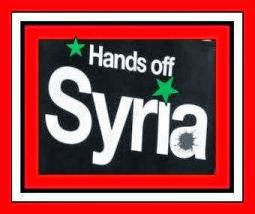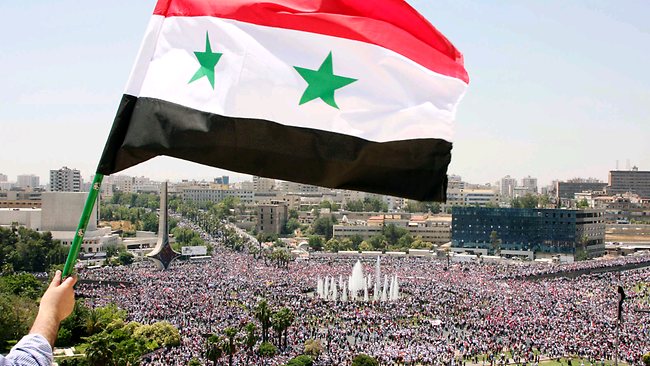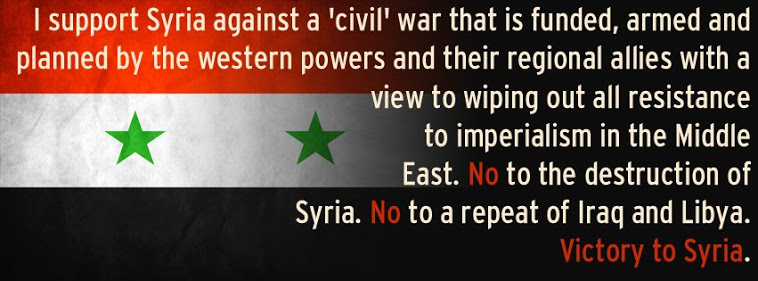Grand Mufti’s links to banned Egyptian sheik stir up tensions | by CHRIS RAY| THE AUSTRALIAN 16 DECEMBER, 2015
 |
| Australia’s Grand Mufti, Egyptian born Ibrahim Abu Mohamed is widely seen as a Muslim Brotherhood supporter. |
Australia’s Grand Mufti, Ibrahim Abu Mohammed, has visited and is recorded as publicly supporting a Middle Eastern sheik who urged the world’s Muslims to fight in Syria, approved suicide bombing and has been banned from the US, Britain and France.
Dr Mohammed visited exiled Egyptian sheik Yusuf al-Qaradawi at his base in the Arab Gulf state of Qatar in April 2013.
They discussed “the role of Islamic communities in Australia”, according to Qatari media, which published a photograph of their meeting in the capital, Doha.
Dr Mohammed’s name and his Australian National Imams Council are also listed on a petition calling on Interpol to remove Qaradawi from its wanted list.
He is sought by Egyptian authorities on charges including incitement to murder and aiding a prison escape.
The petition says the charges are politically motivated. The 89-year-old Qaradawi is considered the spiritual head of Egypt’s banned Muslim Brotherhood and is a prominent opponent of the Egyptian government.
He sanctioned suicide attacks on Israeli civilians as “heroic martyrdom operations”, described the Holocaust as “divine punishment” of Jews and has appeared to justify the killing of apostates. He was denounced as a “theologian of terror” in a statement against the use of religion to incite violence signed by 2500 Muslim intellectuals from 23 countries in 2004.
However, the petition that lists the name of Dr Mohammed and ANIC as supporters describes Qaradawi as a “moderate imam”.
News of the statement was published in Arab media and by Reuters on December 15 last year — the day gunman Man Haron Monis took hostages inside Sydney’s Lindt cafe while claiming allegiance to Islamic State.
Another Arabic news website, Al Hiwar (The Discussion), listed the names of those who supported the statement. It listed the names of Dr Mohammed and ANIC in a report dated December 22, 2014.
Sahn Thaman, an Islamic research and study centre, also recorded the names.
Egyptian-born Dr Mohammed is widely seen as a Muslim Brotherhood supporter.
 |
| Australia’s Grand Mufti Ibrahim Abu Mohamed during his visit to Yusuf al-Qaradawi |
Like Qaradawi, he is a graduate of Cairo’s al-Azhar University, the seat of Sunni Islamic learning.
Dr Mohammed did not reply to written questions put via his spokeswoman.
Asked for confirmation that the Grand Mufti signed the petition or consented to it, a spokeswoman declined to comment yesterday.
A few weeks after he met Dr Mohammed, in May 2013, Qaradawi called on Sunni Muslims around the world to travel to Syria to fight Shia Muslims and other “infidels” supporting the secular Assad regime.
He told worshippers at the Umar bin al-Khattab mosque in Doha: “Everyone who has the ability, who is trained to fight … has to go. I call on Muslims to go and support their brothers in Syria.
“We cannot ask our brothers to be killed while we watch.”
The Syrian war soon became a magnet for would-be jihadists from the West.
An estimated 110 Australians were fighting with extremist groups — mostly Islamic State — in Syria and Iraq last month, the Attorney-General, George Brandis, said. At least 41 have been killed.
Rodger Shanahan, of the Australian National University’s National Security College, said Dr Mohammed and ANIC — which claims to represent most of Australia’s Sunni clerics — should have condemned Qaradawi’s influential Syria sermon for “advocating violence in the name of religion.”
“Here was a leading Sunni scholar calling on people to go to Syria to kill people on the basis of their religious faith, and Australia’s Sunni leadership did not call him out — no press release, no newspaper article, nothing,” Associate Professor Shanahan said.
He described ANIC and the Grand Mufti’s support for Qaradawi as hypocritical given their response to the Paris terror attacks.
They cited Western foreign policy, military intervention and “Islamophobia” as “causative factors” of terrorism but failed to also blame religious motivation.
Professor Shanahan said ANIC and Dr Mohammed were “happy to rail against the policies of Australia or the West” but failed to criticise Qaradawi’s “intolerant views on Christians, Jews and Shia Muslims” and his call to arms in Syria.
This showed ANIC’s “complete unwillingness to confront the issue of Islamic violence and those who advocate it,” he said.
Qaradawi reaches a huge global audience via his website and his long-running “Sharia and Life” program on Al-Jazeera Arabic television, with an estimated 60 million viewers including in Australia.
Chairman of Sydney’s Parramatta Mosque Neil El-Kadomi said Qaradawi’s rhetoric might have encouraged young Australians to go to fight in Syria.
“When Qaradawi called for jihad in Syria, how many lives were lost because of his speech?” he asked.
Mr El-Kadomi described Dr Mohammed’s support for Qaradawi as “a stupid move” that would divide Muslims in Australia. “Qaradawi did a lot of wrong things.
“We should be encouraging peace, not supporting people who tell people to go and fight and kill.”
Mr El-Kadomi argued publicly with Dr Mohammed over his perceived failure to support Mr El-Kadomi when he found himself in the media spotlight following the murder of police employee Curtis Cheng on October 2. He was shot by a 15-year-old boy who prayed at Parramatta Mosque.
Australian National University lecturer Raihan Ismail said Qaradawi was notorious for his rhetoric against non-Sunni Muslims.
“Some Muslims would naturally be unhappy if the Grand Mufti acted in a way that could be seen as political in nature, especially concerning a divisive figure like Qaradawi,” Dr Ismail said.
“However, if you are sympathetic towards the Muslim Brotherhood, you will also be sympathetic towards Qaradawi.”
The deputy chairman of the Islamic High Council of Australia, Sheik Ibrahim El-Shafie, said Dr Mohammed’s support for Qaradawi risked creating a backlash against Muslims in Western societies.
Dr Mohammed was “only speaking for himself and maybe a small group around him. Most Muslims in Australia and around the world would disown such extremist views,” Sheik El-Shafie said.
The Islamic High Council, a Sunni organisation that distances itself from the larger ANIC, has called for intensified efforts to fight terrorism, including banning “extremist views which promote terrorist acts.”
Dr Mohammed and ANIC were among more than 300 names on the Qaradawi petition. Leading members of Islamic organisations in Western countries including Britain, Ireland and Canada also signed.
Turkish President Recep Erdogan also criticised the Interpol Red Notice.
He is an outspoken Brotherhood supporter and Qaradawi has condemned Turkish public protests against Mr Erdogan as foreign conspiracies.
Urging Interpol to remove its “Red Notice” or wanted alert on Qaradawi, the petition condemns Egyptian charges as the product of a “politicised judiciary”.
Qaradawi has called on Egyptians to revolt against the military-backed government of President Abdel Fattah el-Sisi. An army coup ousted the Brotherhood’s Mohammed Morsi in 2013.
Original article here











